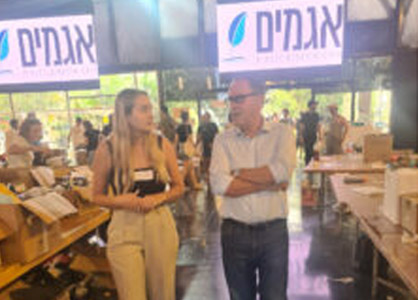
Faculty Profile: Dr. Eitan Rubin
October 6, 2011
Medical Research, Negev Development & Community Programs
Shraga Segal Department of Microbiology and Immunology;
National Institute for Biotechnology in the Negev (NIBN)
Why did you choose BGU?
I held a tenured staff position at Harvard, where everything was top level. But I missed the ease of collaboration that characterizes Israel. People are generally more cooperative and there is a more collegial spirit in Israeli research institutes. The other thing I missed was the sense of building something new. Harvard University will be great with or without me. Here in Israel, and especially at Ben- Gurion University, things we do feel more groundbreaking. Here I can, as an individual, really make a difference.
What projects are you currently working on?
In the Medical Systems Biology Lab I head, we are developing and applying computational methods to study human health. Basically, we’re dealing with the question of how people differ in illness and in health. Why do some respond to treatment and others don’t? What contributes to this variation and can response be predicted?
There are two major sources of differences between people: genetic factors and environment Researchal factors. Our lab uses clinical data to try to understand the environment Research a person has been exposed to, and apply advanced multi-dimensional analysis methods to both genetic and clinical data to look for patterns that predict treatment outcome.
What might this lead to?
We believe this research will assist clinical care as well as provide greatly improved designs for clinical trials. In collaboration with Soroka University Medical Center, we’re analyzing all the blood tests conducted in five years – 50 million measurements – searching for new ways to predict which patients might have a high risk of developing certain conditions, such as ovarian cancer or renal failure.
If we succeed, it will be possible to identify such patients from regular blood tests, and perhaps even to better fit treatment to each patient. As genetic data becomes available in the hospital, we will incorporate it into our models to achieve even better predictive power.
What accomplishments have you found satisfying so far?
I’m especially satisfied with the network of collaborations I’ve established, both in my department and with clinicians from throughout the Faculty of Health Sciences.
What do you dream of achieving? I dream of developing a new way of looking at people. In medicine, I hope to enable a better personalization of medicine, and in biology, I hope to develop a deeper understanding of how and why individuals differ from each other.



